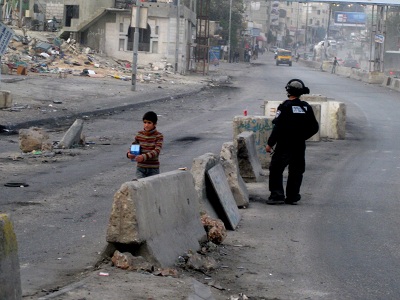
By Rima Najjar
Today, Palestinians are at a crossroads. With increasingly strong voices demanding justice, they have marked the 69-year anniversary of the Nakba (the 1948 founding of Israel), the 50-year anniversary of the Naksa (the 1967 occupation of the West Bank and Gaza Strip) and, in a few months, they will mark the 100-year anniversary of the Balfour Declaration (the 1917 policy by the British government supporting Jewish Zionist plans in Europe to colonize Palestine and create a “Jewish homeland” there with a Jewish immigrant population.)
Israel, on the other hand, as Al-Shabaka analyst Amal Ahmad points out, is happy with the status quo, even if it means a steady escalation of repression as has been happening:
“… during the 33-year period between 1967 and September 2000, Israeli security forces killed about 2,140 Palestinians in the occupied territories, or an average of 65 inhabitants per year; in the past 16 years, an estimated 9,300 Palestinians were killed, or 581 per year – an average annual increase of almost 900 percent.”
Theft of Palestinian land, the hallmark of the Zionist entity since day one, continues unabated, with Israel proposing to build 67,000 illegal Jewish housing units in the West Bank during the very week Palestinians were marking the 50-year anniversary of the occupation.
We therefore do need to wonder if Israel’s savagery and greed in subduing Palestinians’ rebellion over the years have crossed a line of no return.
Since its founding in 1948, the colonial Zionist state has craved Palestinian land without the Arab people in it, and it has gone about resolving its demographic problem in various brutal ways, not least being the utterly inhuman and ongoing siege on the Palestinians it has long herded into a strip of land away from their nearby villages now populated with Jews, recently prompting one commentator to say, “I have never seen a system so effectively reduce contact between a population and the outside world.”
Historian Rashid Khalidi believes that a day of reckoning for Israel is on its way, but that we are only at the beginning of the path:
“In the first decades after the Balfour Declaration, the Zionist enterprise could not have been successful without the crucial support of Great Britain. Similarly, Israel could not have maintained its occupation for 50 years without American support. The almost hysterical reaction to the growth around the world of serious critical responses to Israel’s military occupation of Arab lands and to its colonization enterprise shows that Israel’s leaders and its supporters in the United States are fully aware of these new realities. The tragedy is that it has taken almost 70 years since the 1948 war and 50 years since 1967 to get even to this point, and we are only at the beginning of the path toward full equality, self-determination, civil rights, security, and economic well-being for Israeli Jews and Palestinians alike.”
The path behind us is already long enough and it is getting harder and harder for us to imagine a time when Palestinians will have achieved justice and restitution in their own land and are living side by side with their colonizers. We have shored up our steadfastness across the long years in various ways – with inspiration from history, for example, as Ibtisam Barakat did, compiling a list of historical and personal developments that at one time seemed impossible: “The list included women getting the vote, the abolition of slavery in many countries, humans landing on the moon – and my landing in America to live in relative freedom, after having lived without freedom for two decades.”
Until the day of reckoning arrives, as it must, I believe that our best hope is to nourish the persistence of our collective Palestinian memory, and to visualize “a politics of life”, as Neve Gordon has phrased it. Just as my aunts recall a time before 1948 in the now depopulated village of Lifta of life going on normally for them and their Jewish neighbors across Schneller’s field, and just as Neve Gordon recalls what is now unimaginable – that in 1981, Jewish Israeli teenagers in a neighboring farming community in the Sinai took driving lessons in Rafah, Gaza Strip, we must visualize such normalcy, beyond the normalcy Israel is imposing on Palestinians – that is to say, the normalcy of ossifying the occupation and “legitimizing” itself through an arsenal of deadly weapons and, of course, by blaming Hamas.
– Rima Najjar is a Palestinian whose father’s side of the family comes from the forcibly depopulated village of Lifta on the western outskirts of Jerusalem. She is an activist, researcher and retired professor of English literature, Al-Quds University, occupied West Bank. She contributed this article to PalestineChronicle.com.




